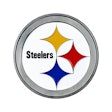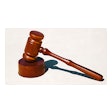Copyright 2018 Gannett Company, Inc.
All Rights Reserved
USA TODAY
ATLANTA — Up on stage Tuesday, as he addressed a convention of women administrators from across college sports, NCAA President Mark Emmert almost seemed wistful talking about the public's pronounced loss of faith in American institutions.
From Congress to the news media to higher education, Emmert said, opinion polls show the trend lines of approval declining. And his field is no different, as Emmert acknowledged that the public trust of college sports is "still high, but moving the wrong direction."
Emmert's diagnosis? "It's often failure to look at the facts," he said.
Perhaps the real answer is taking place in a federal courtroom in New York in Manhattan, where plenty of facts are being laid out about the sport Emmert's organization oversees and, in fact, relies on to fund the NCAA's very existence.
Based only on the small amount of evidence and sworn testimony available in the first of three trials related to the FBI's investigation of corruption in college basketball, it's a fact that shoe companies have been running an underground economy that funnels money to some top prospects.
It's a fact that the people doing the funneling have helped deliver players to specific schools that make millions of dollars wearing the shoe company's apparel.
It's a fact that coaches such as Kansas' Bill Self are at least aware enough of that influence over prospects to keep those bag men close, even if there was no specific discussion about how that influence would work.
And it's a fact that this arrangement has been very good for the shoe companies that want to market their product, the blue-blood programs that boost NCAA tournament ratings, the television networks that build valuable programming off March Madness, and the Hall of Fame coaches, who somehow have managed to retain implausible deniability.
This is how the sport works now, for all to see. This is what it is. But is the NCAA even listening?
Emmert has been criticized in some circles for staying away from the courtroom during the trial of Adidas executive Jim Gatto and Merl Code, a former consultant for the company. If nothing else, making an appearance would signal that Emmert was serious about confronting the truth about college basketball.
It's one thing to see indictments; it's another to hear someone like T.J. Gassnola, the government's star witness and a former Adidas representative, testify about whom he paid, how he did it and who might plausibly have been aware of it.
Though nobody affiliated with the NCAA has been identified in the courtroom during the trial, Emmert told USA TODAY on Tuesday that the NCAA had people representing its interests at the trial. He declined to identify who they were or what capacity they serve (enforcement, outside counsel, etc.).
"We're tracking it very closely and obviously very, very interested in it. Doing everything to cooperate with the federal investigators so that we don't in any way hinder them and as the opportunity arises, as the trials move forward, we'll begin our work. But for now we're watching and staying in close contact.
"We know fully what's going on in the courtroom at all times."
That's at least slightly more realistic than what you heard this week out of Durham, North Carolina, where Duke coach Mike Krzyzewski said he wasn't paying attention to the trial because it's "a blip. It's not what's happening."
Sorry, but the head-in-the-sand routine being performed by Krzyzewski and North Carolina's Roy Williams isn't going to work anymore. The credibility of the sport is under withering assault in that courtroom, and there are still two more trials.
What's being revealed isn't some anomaly; in fact, everything about the evidence suggests it was altogether normal.
Just consider the text exchange between Gassnola and Self on Sept. 19, 2017, shortly after Kansas and Adidas had agreed to a $191 million apparel deal.
After Gassnola thanked Self for helping complete the deal, Self responded, "Just got to get a couple real guys," seemingly referring to recruits.
Gassnola texted back: "In my mind, it's KU, Bill Self. Everyone else fall into line. Too (expletive) bad That's what's right for Adidas basketball. And I know I'm right. The more you have lottery picks and you happy. That's how it should work in my mind."
Self responded: "That's how (it) works. At UNC and Duke."
Gassnola answered that it works that way at Kentucky, too.
"I promise you I got this," he texted Self. "I have never let you down. Except (Deandre Ayton). Lol. We will get it right."
So while Gassnola testified that Self and the Kansas staff never knew that he was paying people around then-recruits Billy Preston and Silvio De Sousa, it's worth asking what kind of recruiting help Self thought Gassnola and Adidas were providing. And further, it's worth asking whether Self was justifying that help when he mentioned "how it works" at North Carolina and Duke with regard to their Nike affiliation.
Those are questions you're unlikely to get much of an answer from any time soon. Self is going to coach the team, and everyone around Kansas is going to mostly pretend it's business as usual because the Jayhawks are a top-three team in the preseason.
But the trial in New York might be something NCAA investigators eventually have interest in. One meaningful rule change the NCAA made is that its enforcement division can import evidence from outside investigations such as that trial.
That process, however, could take years to play out.
"The timeline is up to the federal government and their investigation," Emmert said. "We're mostly in the mode of watching right now and collecting information as it's appropriate and as they give us permission to, but it's going to take a long time."
By then, will anyone even care? Will people such as Self or Arizona's Sean Miller, who have seen the evidentiary smoke billow around them, even stick around long enough to deal with the fallout? Will the NCAA just eventually shrug its shoulders and say it can't prove anything more than the government?
For now, all we're left with is how people in college basketball are reacting to what they're hearing coming out of the trial, and for the most part they're either not talking or pretending like it doesn't exist.
As for Emmert?
"It would really be inappropriate for me to comment," he said, citing the ongoing case.
Maybe so, but as the NCAA remains silent, the facade around how things work in college basketball has come crashing down. Emmert wants college sports to be judged on the facts. Well, they're all right here.
Read More of Today's AB Headlines
Subscribe to Our Daily E-Newsletter
Terms and Conditions Privacy Policy































